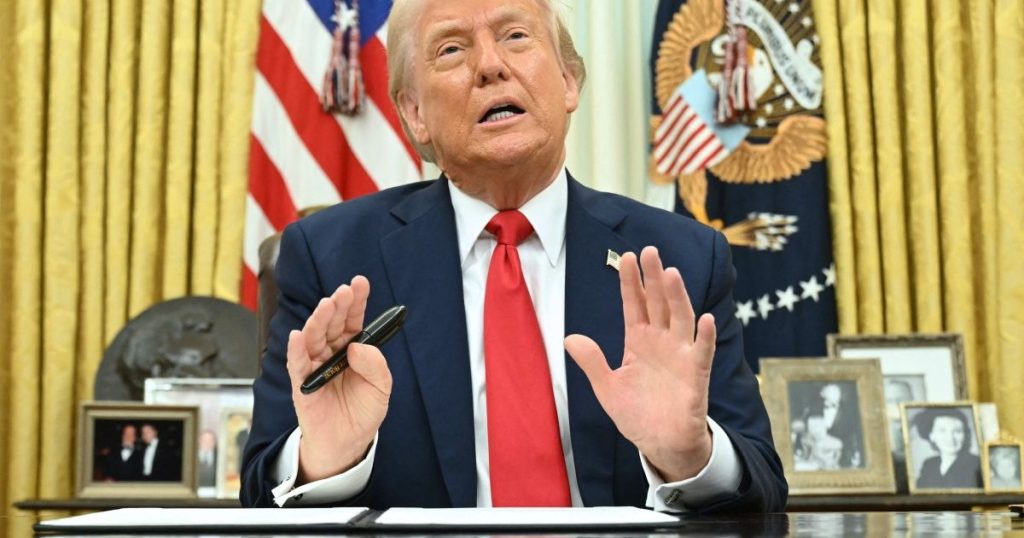The International Trade Union Confederation (ITUC) has vehemently condemned the Trump administration’s imposition of sweeping trade tariffs, characterizing the move as a reckless act detrimental to workers and consumers globally. Announced in April 2018, these tariffs signaled the commencement of a trade war that the ITUC predicted would devastate employment, escalate consumer prices, and stifle economic growth in both developed and developing countries. The ITUC denounced the tariffs as an “aggressive political tool” that prioritizes narrow nationalist interests over global economic cooperation and fairness. This decision, they argue, represents a dangerous departure from the principles of international trade and cooperation, putting short-term political gains ahead of the long-term well-being of workers and the global economy.
At the heart of the ITUC’s critique is the belief that workers will bear the brunt of this trade war. ITUC General Secretary, Luc Triangle, emphasized that workers should not be forced to pay the price for politically motivated trade disputes. He argued that the tariffs were not part of a genuine strategy to support working people, but rather a politically driven maneuver with potentially devastating consequences. Triangle’s statement highlights the ITUC’s concern that the tariffs will lead to job losses, reduced livelihoods, and increased prices for essential goods and services, further burdening working families. The ITUC, therefore, frames the tariffs as an attack on workers and a betrayal of the Trump administration’s promises to improve the lives of ordinary Americans.
While acknowledging the historical downsides of unregulated free trade, such as wage erosion and weakened labor protections, the ITUC argues that protectionist trade wars are not the solution. They contend that such policies exacerbate inequality and disrupt global supply chains, particularly in developing economies striving to establish equitable development frameworks. The ITUC’s position underscores the complexity of the trade issue, recognizing the shortcomings of unregulated free trade while simultaneously rejecting protectionism as a viable alternative. They advocate for a more nuanced approach, one that balances the benefits of free trade with the need for robust labor protections and equitable development.
The ITUC accuses the Trump administration of hypocrisy, citing its domestic record of weakening union rights, reducing public services, and eliminating unionized jobs. They argue that these actions contradict the administration’s stated goals of protecting American workers and creating jobs. Triangle pointedly criticized Trump’s policies as part of a “billionaire extreme-right agenda,” suggesting that the administration’s true intentions lie in advancing the interests of the wealthy elite rather than supporting working families. This accusation of hypocrisy serves to further discredit the administration’s rationale for the tariffs, portraying them as a cynical political maneuver rather than a genuine effort to protect American jobs.
As an alternative to protectionism, the ITUC champions a worker-centered trade model founded on international solidarity, fair wages, and robust labor rights. They call for a multilateral trading system that promotes shared prosperity and prioritizes the well-being of workers globally. This vision emphasizes the need for a more equitable and just approach to international trade, one that prioritizes the interests of workers and promotes sustainable and inclusive economic growth. The ITUC’s call for a worker-centered trade model underscores their belief that trade policies should serve the interests of all stakeholders, not just corporations and the wealthy elite.
In the face of escalating global trade tensions, the ITUC pledges to monitor the consequences of protectionist measures and to defend the rights of workers worldwide. The organization emphasizes the importance of worker voices in shaping the future of international trade, arguing that working people, not political leaders, should be the primary beneficiaries of trade policies. This commitment to worker advocacy underscores the ITUC’s role as a champion for labor rights and a vocal critic of policies that undermine the well-being of workers globally. They advocate for a democratic and participatory approach to trade policy, ensuring that the voices of those most affected are heard and considered.














